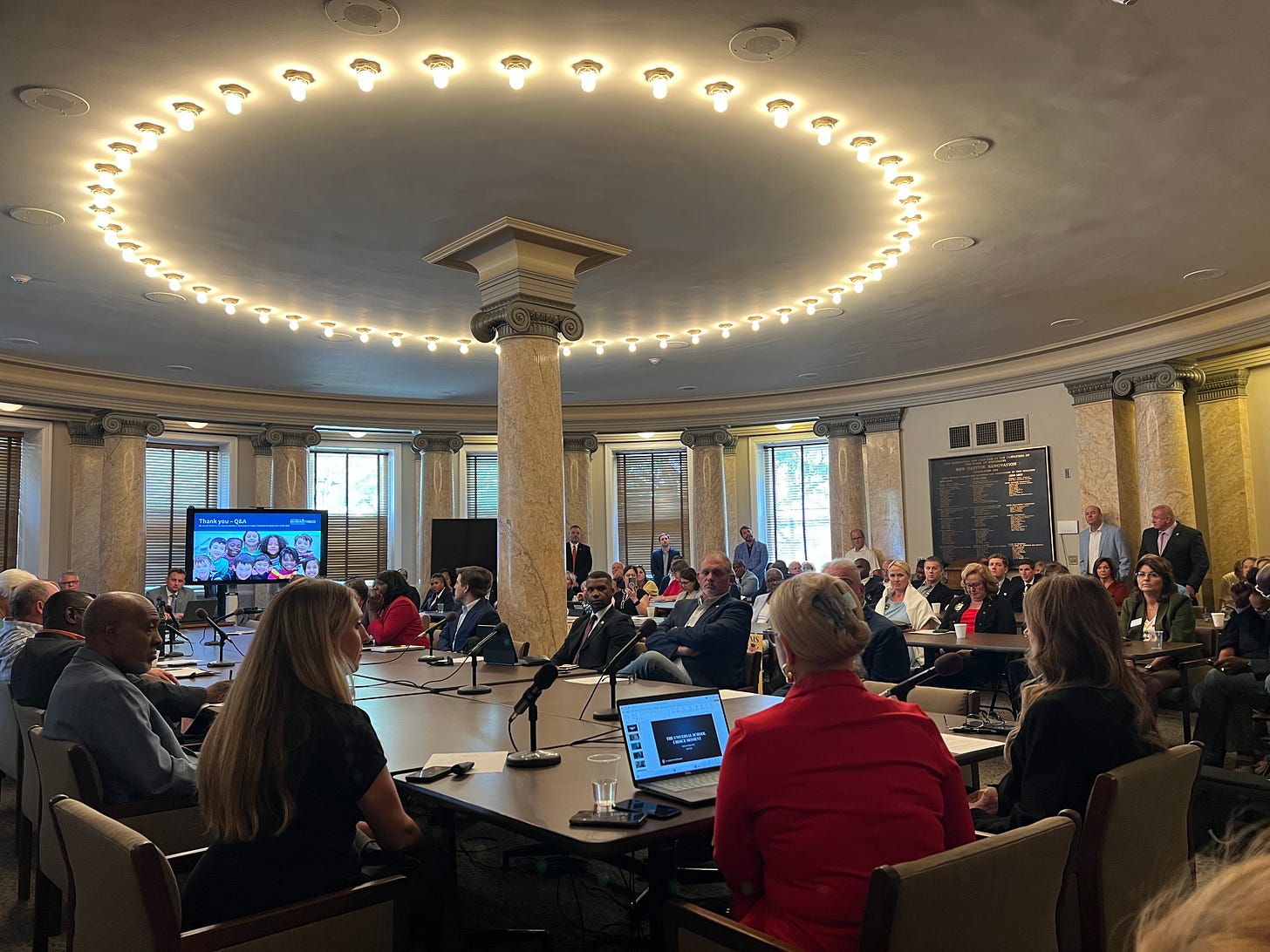Lawmakers meet to discuss expanding 'education freedom' during next session
School voucher systems enable shifting public funds to private schools
Earlier this week, Speaker of the House Jason White’s Education Freedom Select Committee met for the first time ahead of the 2026 legislative session. Speaker White has made no mystery of his support for “education freedom” — a relatively new moniker for what most have come to know as “school choice.”
School choice, the policy platform of using taxpayer funds for private education, has traditionally faced an uphill battle in the Mississippi Legislature, with Republicans and Democrats alike shooting down attempts at more expansive education reforms and narrowing the scope of the state’s voucher program to serve roughly 350 students with special needs.
This year, however, there seems to be a renewed vigor in broadening the program with the goal, according to the speaker’s invited guests Dr. Laurie Todd-Smith and Dr. Lindsey Burke, of a universal school choice program.
The pressure to implement a more comprehensive school choice program isn’t just coming from the speaker’s office, however. Gov. Tate Reeves has long been a proponent of school choice, and recently told Super Talk’s Richard Cross that he doesn’t “ever rule anything out” regarding calling a special session focused on expanding school choice in Mississippi.
Mississippi is one of 19 states with a school choice program, though in the view of many proponents, the current program doesn’t go far enough.
Despite House Education Chair Rep. Rob Roberson (R-Starkville) telling the standing-room only crowd that this wasn’t “about politics,” both Burke and Todd-Smith made their conservative and Trump administration bonafides a central part of their testimony. Both hold current high-ranking positions in the U.S. Department of Education — Burke as deputy chief of staff for policy and programs and Todd-Smith as the head of the federal office that oversees Head Start and childcare. A photo of President Donald Trump at his desk signing education reform-related executive orders in the speakers’ presentation made it clear that the pressure to broaden the school choice program isn’t only coming from the governor’s mansion — it’s coming from the federal level.
Burke repeatedly cited the state of Arizona as a shining example of what school choice can accomplish, and pointed out that Mississippi’s existing voucher program is the smallest of its southern neighbors. What Burke didn’t mention was how rife with corruption these programs are, thanks to a lack of oversight and the opportunity for broad misuse of funds.
Not only has Arizona dropped below Mississippi in the nation’s education report card rankings (NAEP), but the state’s school choice program has resulted in budget challenges and, according to its governor, Arizona could spend more than $1 billion subsidizing private education in the upcoming fiscal year.
According to an investigation from 12News Phoenix, parents taking advantage of Education Savings Accounts (ESAs) for private school tuition or home school expenses have actually used those funds to purchase items such as iPhones, diamonds, Kenmore appliances and lingerie. Arizona also faced a $200 million budget shortfall earlier this summer when school districts were asked to stretch budgets until the state was able to figure out getting funds owed to them.
While many school choice supporters cite ESAs and vouchers as an opportunity for low-income students to attend private schools that are more suited for their needs than their local public schools, critics say that the bulk of voucher beneficiaries are actually the students already enrolled in public schools.
That has certainly been the case in nearby Alabama. According to the Associated Press, more than half of families who applied for Alabama’s new school voucher program have children attending a private school or have chosen to home school their children.
In Arkansas, the state’s Department of Education has decided that Little Rock Junior Cotillion and equestrian lessons count as appropriate uses for their voucher program, LEARNS.
As such examples of fraudulent spending in ESA and voucher programs continue to mount, and the state of Mississippi continues to grapple with the direction of public education, it’s worth noting that this same state legislature and its Republican leadership have yet to hold a single hearing about the TANF scandal — the single largest misuse of taxpayer dollars in the state’s history.
The next hearing of the Education Freedom Select Committee is tentatively scheduled for late next month.
Pre-legislative meeting of House Education Freedom Select Committee (Kelcy Higgins)




